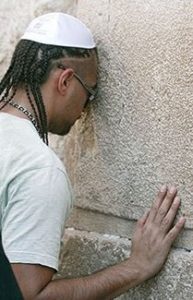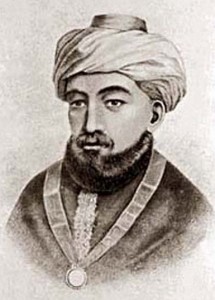America’s First Rabbi
Isaac Aboab da Fonseca (1605-1693) was born in Portugal to a family of Conversos, or “Marranos” – Jews who had been forced to convert to Christianity during the Inquisition. Despite the conversion, their persecution persisted, and Conversos often continued to practice Judaism in secret. In 1581, the Dutch Republic separated from the Spanish Empire, triggering a large migration of Sephardic Jews to the area. By 1603, Dutch law officially made it legal for Judaism to be practiced openly. In 1612, da Fonseca’s family moved to Amsterdam, where they could finally practice Judaism once again. Da Fonseca went to study under the tutelage of the great doctor, poet, mathematician, and rabbi Isaac Uziel, who had opened a new Talmudic academy a few years earlier. Da Fonseca showed his genius early on, and was made a rabbi by the age of eighteen. Some twenty years later, he was invited to serve as the chief rabbi of the Dutch colony of Pernambuco in Brazil. This colony had a population of about 600 Sephardic Jews that fled the Spanish and Portuguese Inquisition. Da Fonseca’s arrival in 1642 likely made him the first rabbi to set foot in the Americas. During his thirteen years there, the colony established a proper synagogue, mikveh, and yeshiva – perhaps the very first in the New World – and the Jewish population grew to as many as 5000. During this time, he also wrote what is thought to be the first Hebrew text produced in America. Unfortunately, a Jesuit priest convinced the Portuguese to reconquer the colony and destroy its Jews who “have their open synagogues there, to the scandal of Christianity”. The Jews took up arms alongside the small Dutch army, and resisted the Portuguese forces for nine years. The Portuguese ultimately prevailed, but the Dutch would not surrender until the Portuguese agreed to let the Jews go. The majority sailed back to Amsterdam with da Fonseca. (One of these ships was attacked by pirates, lost its way, and ended up in the nascent colony of New Amsterdam. These first Jews in North America helped establish what would later become New York City.) Back in Amsterdam, da Fonseca soon became the city’s chief rabbi. He was on the panel that excommunicated the famous philosopher Benedict (Baruch) Spinoza. In his old age, Rabbi da Fonseca became known as a great mystic and Kabbalist. He passed away at 88 years of age. In 2007, the Jerusalem Institute published a book of his writings and teachings.
Words of the Week
If you want to change the world, change yourself.
– Jack Ma



